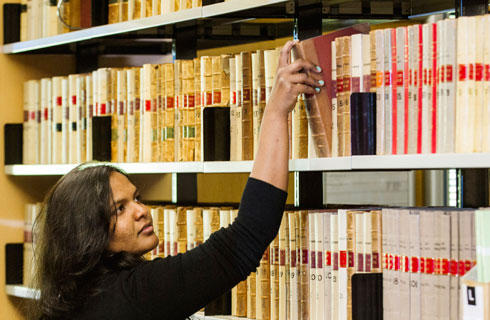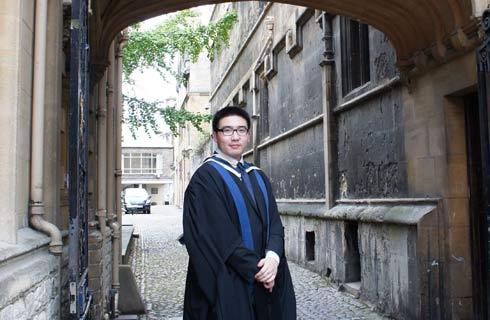理学学士(荣誉)微生物学
BSc (Hons) Microbiology

学历文凭
Bachelor Degree with Honours

专业院系
Faculty of Biological Sciences

开学时间

课程时长

课程学费

国际学生入学条件
IDP—雅思考试联合主办方

雅思考试总分
- 雅思总分:
- 托福网考总分:
- 托福笔试总分:
- 其他语言考试:
CRICOS代码: C500
申请截止日期: 请与IDP联系 以获取详细信息。
课程简介
Microbiology is the study of organisms too small to be visible with the naked eye, including bacteria, fungi and viruses. Your course will cover an area of science fundamental to the understanding of life on this planet – from human and animal disease, better food production to microbial involvement in global cycles.You will study a range of microbiological topics with a biomedical focus, such as bacterial resistance to antibiotics, the use of microbes in biotechnology, and how new pathogens, such as the cause of COVID-19 (SARS-CoV-2), emerge and cause disease.By studying at Leeds, you’ll be part of the next generation of expert scientists, developing specialist knowledge and skills, whilst building on the foundations of microbiology within areas such as immunology, genetics, biochemistry and cell biology.This 3 year BSc can also be converted into an integrated Masters (MBiol) with an optional additional year of specialist training, subject to suitable academic performance and availability. You would study advanced research topics and undertake your own extended research project.Course highlightsWeekly practical classes in the first two years of your degree, with the option to experience working in a research lab in your final year..Our teaching is research-led at every stage of your degree, ensuring that you engage with cutting-edge scientific developments and techniques from the start of your studies through to your final-year projectsExperience world-class facilities and be part of a cutting-edge research-active environment.Enjoy outstanding graduate employability opportunities amongst top employers, both within and beyond scientific research.Gain further practical experience and boost your employability through our Year in Industry programme.Experience life and learning in a different country through our study abroad programme, where you'll gain fresh perspectives and develop skills valued by employers.Flexible degreesMicrobiology is a specialist degree within the School of Molecular and Cellular Biology, which offers you flexibility throughout your time at Leeds.All our School of Molecular and Cellular Biology degree courses shares the same set of compulsory modules in the first year. A key benefit of having a common first year is that at the end of year 1, there are opportunities to transfer onto degree courses in Biological Sciences and Biotechnology and Enterprise, subject to approval. Additional degree courses may be available depending on your academic background.FacilitiesThe School of Molecular and Cellular Biology is an international research hub with outstanding facilities for structural biology, biophysics, cell biology and imaging. This is underpinned by a recent £17 million investment by the University and a large grant portfolio from major external funders (the Wellcome Trust, Royal Society, BBSRC and MRC). These facilities underpin our research-led teaching and allow us to offer final-year projects at the frontier of modern research. Recently refurbished teaching labs and dedicated computer clusters will allow you to develop your practical and computational skills during the first two years of your course. The Faculty Student Opportunity Team provides expert support for preparing applications for placements, internships and jobs.Wellbeing and support The University of Leeds features an extensive network of excellent services dedicated to you and your wellbeing. We are here to help throughout your time in higher education, ensuring you have everything you need to succeed. For more information on the different facets of support you will have access to, please see our Wellbeing and Support page.AccreditationAccredited by The Royal Society of BiologyThe BSc Microbiology (Industrial) variant of this course is accredited by The Royal Society of Biology.
相关申请
 预科
预科 奖学金
奖学金 实习机会
实习机会 在校学习
在校学习 跨境学习
跨境学习 校园授课-线上开始
校园授课-线上开始 在线/远程学习
在线/远程学习
开学时间&学费
学费信息仅供参考,请与IDP联系以获取详细信息
| 开学时间 | 时长 | 学费 | 地点 |
|---|
学校排名

世界排名153
数据源:
泰晤士高等教育世界大学排名
关于利兹大学

利兹大学在《2025 完整大学指南》中名列英国大学前25名,在2025 QS世界大学排名中名列世界前100名。它也是罗素大学集团大学之一,这是英国著名的顶尖研究密集型大学名单。该大学的学生满意度很高,在英国排名第三(2018年《泰晤士报高等教育学生体验调查》)。作为同一项调查的一部分,该大学的校园设施在英国排名第二,这是对学生发挥潜力的绝佳校园的认可。近年来,两栋新建筑投资超过1.2亿英镑。体育设施也被认为是世界级的。The Edge是一个为学生提供的令人难以置信的健身中心,包括一个25米的室内游泳池、攀岩墙和为不同体育活动设置的各种大厅。这是一所热情友好的大学,拥有充满活力、多样化的学生群体。事实上,来自世界130多个不同国家的13800多名国际学生在利兹大学学习。学生会是这个国家最活跃、最活跃的工会之一。学生可以加入300多个俱乐部和社团,利兹大学联盟(LUU)是英国第一个被全国学生联合会评为''优秀''的俱乐部和社团。
本校相关课程

生物多样性与保护
学历文凭
Masters Degree (Taught)
开学日期
课程费用总额


统计博士学位
学历文凭
Ph.D.
开学日期
课程费用总额


纯粹数学博士学位
学历文凭
Ph.D.
开学日期
课程费用总额


应用数学博士学位
学历文凭
Ph.D.
开学日期
课程费用总额


PhD in Geography
学历文凭
Ph.D.
开学日期
课程费用总额


PhD in Microwave and Millimetre Wave Engineering
学历文凭
Ph.D.
开学日期
课程费用总额

其他相关课程

生物医学学士
 皇家墨尔本理工大学
皇家墨尔本理工大学学历文凭
Bachelor Degree
开学日期
课程费用总额


哲学硕士-生物医学和生物化学
 澳大利亚国立大学
澳大利亚国立大学学历文凭
Masters Degree (Research)
开学日期
课程费用总额


生物医学学士
 詹姆斯·库克大学
詹姆斯·库克大学泰晤士高等教育世界大学排名:361
学历文凭
Bachelor Degree
开学日期
课程费用总额


理学学士(海洋生物学)
 弗林德斯大学
弗林德斯大学泰晤士高等教育世界大学排名:307
学历文凭
Bachelor Degree
开学日期
课程费用总额


理学学士-海洋生物学(荣誉学位)
 弗林德斯大学
弗林德斯大学泰晤士高等教育世界大学排名:307
学历文凭
Bachelor Degree with Honours
开学日期
课程费用总额


城市与环境规划学士/海洋生物学理学学士
 格里菲斯大学
格里菲斯大学泰晤士高等教育世界大学排名:258
学历文凭
Dual Degree
开学日期
02 March 2026
课程费用总额
AUD 167,500










 英国
英国